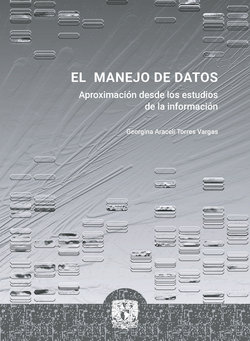Читать книгу El manejo de datos. Aproximación desde los estudios de la información - Georgina Araceli Torres Vargas - Страница 7
OPEN DATA AND THE OPEN SCIENCE MOVEMENT
ОглавлениеIn the traditional scholarly communication model, scholars disseminated the results of their research through conference presentations, books, and articles published in peer-review, subscription-based journals. The Open Access (OA) movement has changed the model of scholarly publishing encouraging scholars to share their papers through open access publishing or depositing published articles in institutional or disciplinary repositories (Swan 2012). The emphasis of OA, however, has been almost exclusively on opening access to journal articles, not so much on research data. As Borgman (2015) notes open data is “substantially distinct from open access to scholarly literature” (p. 44). Researchers would sometimes share data sets with colleagues in the scholarly community but rarely provide open access as part of the traditional scholarly communication practice.
Data is a valuable output of scholarly work and the calls for providing open access to research data come not only from the funding agencies but also from the members of the scholarly community. Opening access to data is believed to contribute to transparency and reproducibility of research and to the more efficient scientific process (Kraker et al. 2011; Molloy 2011; Nosek et al. 2015). Open research data can be freely accessed, reused, and redistributed for scholarly purposes. The principles of FAIR data (findable, accessible, interoperable and reusable) provide a foundation for access and reuse of research data across disciplines and borders (Wilkinson et al. 2016). Open Data is a key component of the Open Science movement.
The Open Science movement advocates for opening all phases of the research cycle and sharing all outcomes of the scientific work (Foster 2018). It emphasizes a more open, inclusive, and collaborative research process and encourages new ways of diffusing knowledge by using digital technology. The term “Open Science” often serves as an umbrella term encompassing scholarly outputs, practices, and collaborative digital tools. In its broad understanding, it includes open data, open publications, open educational resources (OER), open source software, open peer review, and citizen science (Bezjak et al. 2018). Fecher and Friesike (2014) note the diversity and even ambiguity of the discourse on Open Science and identify several perspectives or “schools of thoughts,” ranging from making knowledge freely available for everyone to developing an alternative system for evaluating quality and measuring impact.
Vicente-Sáez and Martínez-Fuentes (2018) acknowledge the diversity of perspectives and concepts of Open Science in their systematic review of the scholarly literature. The authors provide an integrated definition to stimulate a debate about the social, economic, and human added value of Open Science. As a result of their analysis, Open Science is defined as
the practice of science in such a way that others can collaborate and contribute, where research data, lab notes and other research processes are freely available, under terms that enable reuse, redistribution and reproduction of the research and its underlying data and methods. In a nutshell, Open Science is transparent and accessible knowledge that is shared and developed through collaborative networks (Vicente-Sáez & Martínez-Fuentes 2018).
The concept of Open Science and the FAIR data principles have been embraced by the European Commission and incorporated into the European Open Science Cloud roadmap (European Commission 2018). A recent report examines the range of data skills needed to support the implementation of FAIR principles and distinguishes between research community skills, data science, and data stewardship (Hodson et al. 2018). The proponents of Open Data recognize that not all data can be open and acknowledge the need to balance openness and protection of sensitive data (European Commission 2016). Qualitative and personal data in social and health sciences pose many challenges for sharing. Some data can be anonymized and released while other data sets will need to remain closed. The European Commission promotes the principle that data should be “as open as possible, as closed as necessary” (European Commission 2016, p.4). Research data management is a critical component of opening and sharing data and determining the levels of openness.
